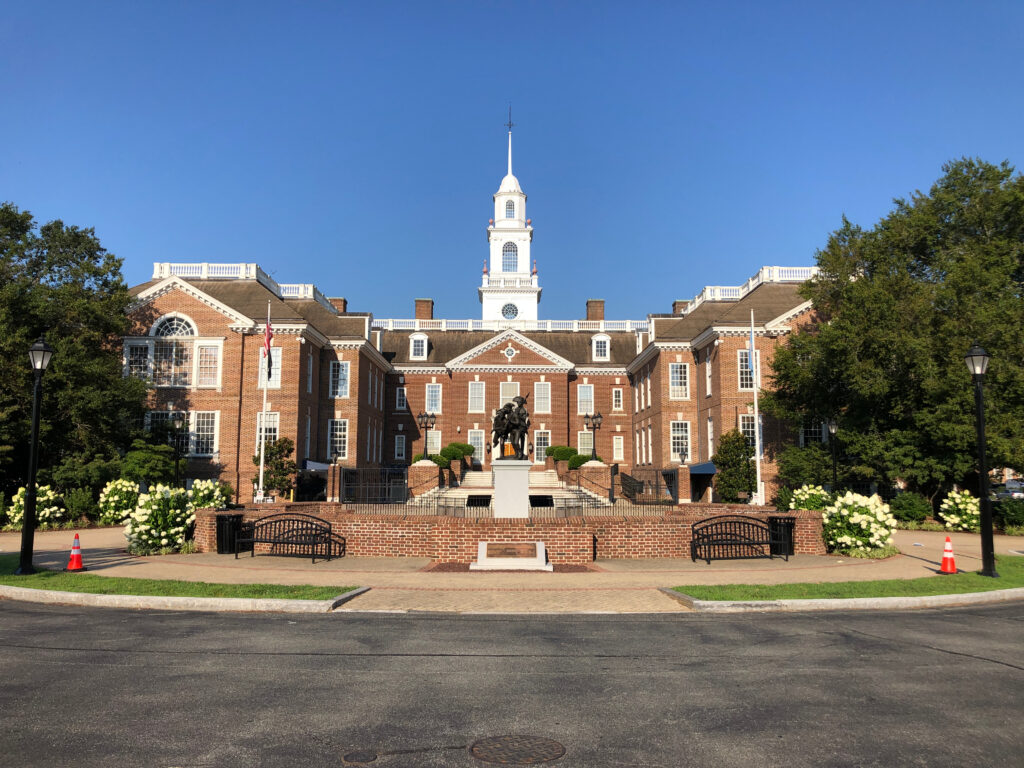
Published March 15, 2023
On March 15, Fellow Eric N. Kniffin of the HHS Accountability Project submitted a memo to the Delaware General Assembly House Judiciary Committee offering comment on House Bill 74 (HB 74):
While HB 74 would affect many religious traditions, the Catholic Church’s size and its much-publicized child abuse crisis usually place it at the center of debates over child sexual abuse and the clergy penitent privilege. As such, my analysis in the attached memorandum focuses on how this bill would affect Vermont Catholics, and why the State does not need to intrude on a Catholic sacrament in order to protect its citizens. Though I focus on the Catholic Church here, the general rationale and particularly the legal arguments set out in the memorandum’s final section would apply to other religious traditions as well.
HB 74 not only misunderstands where Delaware’s problem with child sexual abuse lies; it also seems to misunderstand the sacrament of confession in the Catholic Church and the nature of a priest’s commitment to honoring the privacy of what people reveal in confession. As detailed in the attached memorandum, HB 74 would not succeed in forcing Catholic priests to violate one of their most important religious vows. At the same time, there is every reason to believe that HB 74 would have a chilling effect on how Delaware Catholics approach the Catholic sacrament of confession and what they reveal there. It is hard enough to admit your sins in confession; it would be even harder if you feared the State might coerce your priest into betraying your trust. Finally, Catholic priests are already trained to encourage people to approach them outside of the confessional so they can offer follow-up practical aid—like reporting child abuse—that priests cannot do based on information learned in the confessional alone.
Because the Catholic Church in Delaware has a strong record of protecting children, and because Catholic priests have an unyielding commitment to keeping confessions confidential, HB 74 would not result in any new reported cases of child abuse. Delaware should save the money it would spend on a losing lawsuit defending HB 74 (and paying the other side’s attorney fees) and spend those public funds instead on proven initiatives that will actually help keep Delaware’s children safer.
The memorandum focuses on five major points:
- The Catholic Church in the United States and in Delaware is committed to preventing and reporting child abuse;
- The absolute confidentiality of what is said in the confessional is a longstanding and fundamental part of a Catholic sacrament;
- The clergy penitent privilege is not “loophole”—it is a venerable part of our legal system, and there is no evidence that the seal of the confessional has contributed to the sexual abuse crisis in the Catholic Church;
- No existing mandatory reporting law directly attacks the Catholic Church’s sacraments as would HB 74, and
- A mandatory reporting law that eliminates the clergy penitent privilege would likely be found unconstitutional.
Eric Kniffin is a fellow at the Ethics and Public Policy Center, where he works on a range of initiatives to protect and strengthen religious liberty as part of EPPC’s HHS Accountability Project.











